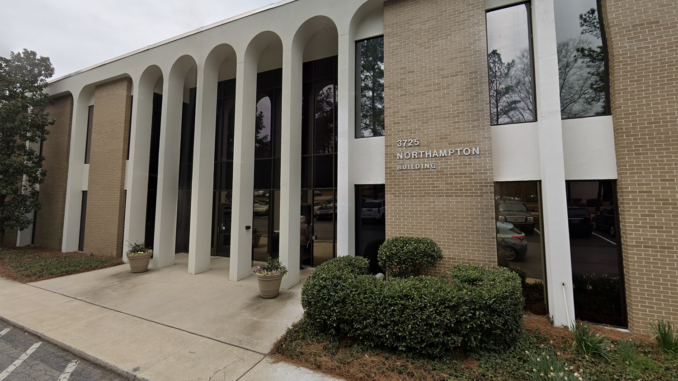
RALEIGH — Education policymakers, members of think tanks, elected officials and other stakeholders gathered for the Public School Forum of North Carolina’s (PSFNC) 2023 Eggs and Issues forum held at N.C. State’s McKimmon Center in Raleigh on Jan. 31.
The top five priorities presented by PSFNC included:
Ensure fair and competitive compensation for educators
Address the root causes of mental health and school safety crises
Grow, retain and diversify the teacher pipeline
Prepare students for the world they live in
Implement, monitor, and evaluate the Leandro Comprehensive Remedial Plan
Opening remarks unveiling the priorities were given by PSFNC’s senior director of policy and research Dr. Lauren Fox, and PSFNC’s president and executive director, Dr. Mary Ann Wolf.
Both Fox urged lawmakers in the room to fully fund all aspects of education while claiming the $100m appropriated in the last budget for educator pay increases was “not enough.” She also said the principal pay plan needs to increase. She said these increases are “not extravagant,” and we need to pay teachers a “living wage.”
Wolf referred to today’s students as the “gun violence generation” and said ease of access to guns by kids is a big issue, and lawmakers need to make laws for the safe storage of firearms and adopt federal gun bans. North Carolina already has a safe storage law on the books to protect minors, and recently proposed legislation would create a public education campaign on firearm safety.
Wolf also said youth suicides have doubled in recent years and that “Kids have the right to feel safe and supported at school.” She said the state falls below the recommended ratios for school psychologists and social workers.
Teacher vacancies are due to “attrition,” according to Wolf, but the most recent state of the teaching profession report shows last year’s attrition rates are in line with previous years. Wolf also said there are “barriers” to becoming a teacher and suggested removing the PRAXIS Core licensure assessment, along with raising compensation and expanding teacher satisfaction surveys.
A bulletpoint included in PSFNC’s priorities calls for increasing state-funded base pay for teachers by 24.5% to reach the national average and eliminate the teacher pay penalty. Additionally, teachers should be paid for additional duties.
North Carolina’s average salary last school year was just over $53,450, and the beginning teacher salary stands at $37,000, which PSFNC says is below the state’s “minimum living wage” of around $48,346.
The proposed increase of 24.5% for pay could be drawn from district unspent pandemic relief funds as some lawmakers have noted, including Senate Leader Phil Berger (R-Eden), who stated in his remarks on the opening day of the current session that “We must disabuse ourselves of the notion that more money alone buys positive outcomes for our students.”
PSFNC claims the national average salary for teachers increased by 3% during the time periods of 1999-2000 to 2020-2021 and that the average North Carolina teacher salary dropped 11.5% for the same periods.
Notably missing from PSFNC’s claim is that the General Assembly has raised the average teacher pay by roughly 20% since 2014, the third-highest set of pay increases in the country. Just prior to the start of the pandemic in January 2020, Governor Roy Cooper vetoed a budget that would have included the sixth and seventh consecutive pay raises for teachers in the state.
“Climate change,” “systemic racism,” and “deep political divides” are all things in the world we live in that schools need to prepare students for, according to Fox.
“Kids will need to develop empathy,” said Fox, who went on to refer to character trait development in the N.C. Department of Public Instruction’s (NCDPI) “Portrait of a Graduate.” Priority items to increase student empathy included more Social and Emotional Learning and Culturally Relevant Teaching.
Replacing the A-F school grading system was brought up, but neither Fox nor Wolf mentioned the current efforts by NCDPI to revamp the system. Altering entry-level and current teacher compensation through licensure changes is also being worked on by an NCDPI committee, however, that work was not brought up in the opening remarks.
The Leandro Comprehensive Remedial plan was addressed by Fox, who cited last fall’s N.C. Supreme Court order to requiring the transfer funds for years two and three of the plan. Right now, that funding total sits at $677.8 million.
“The ruling is a big win for students,” said Fox. “They should be benefitting from funding they are constitutionally owed.” She also said there is a need to monitor that investment, something that is not built into the remedial plan or the transfer order.



